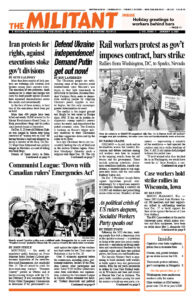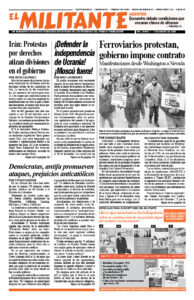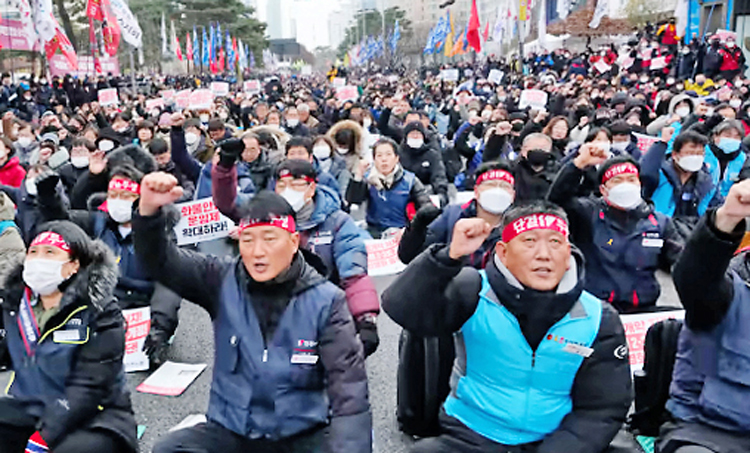Striking South Korean owner-operator truck drivers, members of the Korean Federation of Public Service and Transport Workers’ Union, Truckers Solidarity Division, voted Dec. 9 to end their 16-day walkout.
Thousands of truckers had gone on strike Nov. 24, seeking financial protections as fuel prices soared. The government issued onerous back-to-work orders and mobilized military vehicles to break their strike.
About 3,600 of the Cargo Truckers Solidarity union’s 26,000 members participated in the vote, with some 62% voting to end the strike. The union said it will continue to fight. The central issue is truckers’ demand that the government make permanent minimum Safe Trucking Freight Rates, established during the pandemic and due to expire at the end of the year.
The Safe Rates system sets minimum pay rates for truck drivers who own their own trucks, ensuring that they can cover the costs of operating their vehicles and make a decent living. It relieves pressures on them to speed, overload vehicles and drive long hours.
Safe Rates applies only to shipping containers and cement. Strikers called for expanding the benefits to other cargo, including oil and chemical tankers, steel and automobile carriers and package delivery trucks.
The government offered to extend the current system for three more years but has so far rejected calls to widen the application of minimum rates.
The vote came a day after the government expanded its back-to-work orders to cover 10,000 drivers transporting steel and petrochemicals, claiming a continuing strike would wreck the economy. The order had first been issued against 2,500 cement truck drivers.
The back-to-work orders marked the first time any South Korean government has exercised a law revised in 2004 that says failure to comply is punishable by up to three years in jail or a maximum fine of 30 million won ($23,000), as well as loss of your driver’s license. The truckers say the orders infringe on their basic right of collective action and freedom of association.


